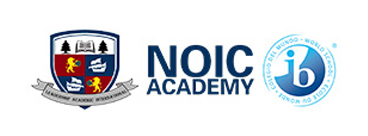UCLA 商业分析
UCLA Master of Science in Business Analytics
概述:
Globally, businesses have seen an explosion of data, and as a result, exponential growth in the need for qualified, strategic analysts. As companies make critical business choices, they increasingly rely on analysts to extract value from data to inform strategic marketing and operational decisions. In essence, analysts give data power. UCLA Anderson, a top-ranked business school, has designed this program so that graduates will become technically fluent, relevantly experienced and fully prepared to lead in the field of business analytics.
关键词:


Course Descriptions课程描述
Math and Stats for Analytics
Business decisions are made with partial information in an uncertain environment. The objectives of this course are to introduce (i) data analyses that are appropriate for generating information useful in decision making and (ii) a framework for analyzing decisions based on partial information. In order to achieve these objectives, we shall develop a foundation of probability and statistics; this basic grounding is also necessary for subsequent courses and for a career in business analytics.
R Programming Essentials
From small startups to firms like Google and Amazon, R is the language of choice for data analytics. Most R users only scratch the surface of the capabilities of R and do not develop an understanding for basics of the language and its great asset, extendibility. The goal of this course is to provide students with a good working knowledge of the basics of R required to succeed as a data scientists. In addition, we will emphasize how to extend the language by function programming and package development. Scientific document creation and reproducible research has become a recent addition to the R environment and we will provide a working introduction to these important topics.
SQL and Basic Data Management
This 2-unit course will introduce students to relational algebra, SQL, and the basic elements of data management. Students are expected to do their own coding. The course will also teach students how to use regular expressions and will help them become familiar with database terminology (e.g., schema, one-to-one, one-to-many, many-to-many, etc.).
Optimization
The course covers a wide variety of optimization models that can be used to solve business problems. The course emphasizes mastery of spreadsheet modeling as an integral part of business analytic decision making. The managerial models covered include linear programming, network and distribution models, integer programming, and nonlinear programming. The course is interdisciplinary; problems from operations, finance, and marketing are used to achieve the course objectives. This is a hands-on course. In every class, we will work on problems and develop spreadsheet models to facilitate decision making. Optimization using R and Matlab will also be covered.
Business Fundamentals for Analytics
Business Fundamentals for Analytics is concerned with the application of economic, finance and marketing principles to key management decisions within organizations. It provides the analytical tools for a better understanding of the external business environment in which organizations operate. A primary purpose of the course is to develop tools and background useful for the other courses in the M.S. in Business Analytics program.
Data Management
This course is about understanding data, data structures and the technologies that are essential to building analytic frameworks. In this course students will be exposed to various elements of an effective data management framework. The course will deal with both tactics and strategies related to managing, manipulating, storing and delivering data. There will be a number of exercises using R, Python, regular expressions, SQL, and NoSQL, which will help the student understand how to manipulate and manage data in a real world context. The course will also cover advance frameworks for distributed storage and processing, such as Hadoop and Spark.
Prescriptive Models & Data Analytics
The course will teach fundamental tools in data analytics, including experimental design and analysis, regression analysis and model design, as well how to implement these approaches using the R statistical analysis package. However, this is not a course in statistical theory or econometrics. Rather, the course has a strong practical orientation, equaling emphasizing critical thinking skills, the ability to ask the right kinds of questions for data analysis, and the creative aspects of designing a data analytics approach capable of delivering a convincing analysis that would support decision making.
Industry Seminar
This course brings relevant industry practitioners into the classroom to share their experiences, challenges and strategies relating to business data analytics. The speakers will be from a variety of industries and at various levels of seniority so as to offer the student different perspectives on the issues faced by analysts, managers and decision-makers in today's corporate environment. This course is also intended to help students develop strong interpersonal skills, business acumen, and the ability to translate business objectives to an analytical framework and action items.
Operations Analytics
The internal operations of a firm are responsible for executing the firm's business plan to deliver its value proposition. Achieving operational excellence helps firms improve their return on assets in the short term, but also creates a knowledge base that helps building a competitive advantage in the long run. In today's globalized world, it is becoming impossible to excel operationally without the use of quantitative models and data-driven decision making. The purpose of this course is to learn how business data analytics can be used to optimize internal processes and resources. The course is based on applications and data-driven cases that illustrate quantitative techniques and show how to build an operational competitive edge based on business analytics.
Competitive Analytics
This is a course in applying data analytics to examine competitive conditions in an industry or market. The goal is to learn state-of-the-art practical tools that can be utilized to answer the following kinds of questions: How competitive is a given industry?
What role does product differentiation play in determining pricing and margins?
Which specific products are close substitutes (whether from the same firm or from different firms)?
Which markets / products are long-term profitable for a firm, and which are not?
What products should a firm offer, and how should it price them? What markets should a firm enter, and or exit?
How do we expect competitors to respond if we change prices, eliminate products, or introduce new products?
Customer Analytics
This course is about the accumulation, management and analysis of customer data to make better decisions. It introduces students to key analysis tools of customer level data such as clustering methods for segmentation, choice models using both stated preference data (survey/conjoint data) and behavioral data (scanner panel data, attribution data) and marketing mix models. The class uses real-world cases, exercises and projects to help students aggregate the theories, frameworks and methods they have learnt in earlier classes. In addition, the class aims to add to the students’ skill set by introducing students to sophisticated ideas and approaches to analyzing, interpreting and portraying customer and marketing data.
Internship: Fieldwork/Research in Business Analytics
M.S. in Business Analytics students are required to do an internship with a company in the area of business analytics. The 4-unit summer internship provides students with either research or practical experience applying their business analytics knowledge in a real-world setting, strengthening their competitive position in the marketplace upon graduation.
Internet Customer Analytics
If you are starting a new online business or product line, how ought you to go about acquiring new customers? Once you have a core base of good customers, how do you go about finding more customers like the good customers you have? How do you strengthen the relationships with your good customers, build their loyalty and make them heavier buyers from you? How do you prevent your good customers from leaving you for your competitors?
Healthcare Analytics
With healthcare spending in the United States exceeding 17% of GDP and the demand for health services continuing to increase, improvements in the quality and efficiency of healthcare delivery are needed. This course explores opportunities for improvement in the design and management of healthcare systems and operations, through the use of tools such as regression analysis, linear optimization, queuing theory, decision analysis, Monte Carlo simulation, and machine learning techniques.
Entertainment Analytics
The goal of this class is to introduce students to business analytics in the entertainment industry. The course is divided in two parts. The first part focuses on movies studios, television, and online media. A recent study by PwC revealed that 66% of entertainment and media executives have changed the way they approach decision making as a result of big data and analytics. The study lists the top three changes in the last 2 years: (i) executives have made greater use of specialized analytics tools; (ii) they have employed a dedicated data insights team to inform strategic decisions; and (iii) they have relied on enhanced data analytics such as simulation, optimization, or predictive analytics.
申请要求:
关键词:数理背景 计算机编程背景
常见问题:
Business analytics is the application of statistical, computational, quantitative, econometric, and management tools to the informational flows of an organization for the purpose of addressing business needs. The aim of the MSBA program is to prepare graduate level students with the knowledge, training, and skills required to fulfill roles in the business world in the area of business analytics. The Anderson MBA programs are longer in duration, 2 to 3 years in length depending on the program, and require work experience. In addition, the course work in the MBA Programs is broader and geared toward students with an interest in general management theories and practice. The MFE program differs from the MSBA in that quantitatively focused MFE students take only courses directly related to modern finance theory and practice such as stochastic calculus.
项目预计招生人数?
2017Fall 招生35人。
项目时长?
The program is 13 months. Classes begin in November and end in December of the following year.
The program begins in Fall Quarter 2017 (November 6, 2017 – December 15, 2017).
花费:
Program Charges for the Masters of Science in Business Analytics Class of 2018 is anticipated to be $62,579 total. Program charges do not include living expenses, transportation costs, parking, books, medical insurance, campus fees, or a laptop computer. Charges are subject to change on an annual basis. Fall 2017 charges for the program have not yet been finalized.
STEM?
Yes, the UCLA Anderson MSBA Program is qualified for STEM which can extend an international student's Optional Practical Training (OPT) by 17 months - for a total of 29 months. OPT is temporary employment for practical training directly related to the student's major area of study.
是否要求工作经验?
Work experience is not required but it is recommended for admission to the UCLA Anderson MSBA Program.
推荐信?
2封。It is suggested that letters of recommendation be written by individuals who can evaluate your quantitative skills and your management potential such as professors, employers and managers.
In general, UCLA requires a degree from a 4-year program or better. However, exceptions can be made for 3-year degrees from universities in Commonwealth countries. As mentioned before, the degree should demonstrate a quantitative background.
Yes. Interviews are done on an invitation-only basis. The MSBA office will contact you after an application has been submitted if you are invited for an interview.













